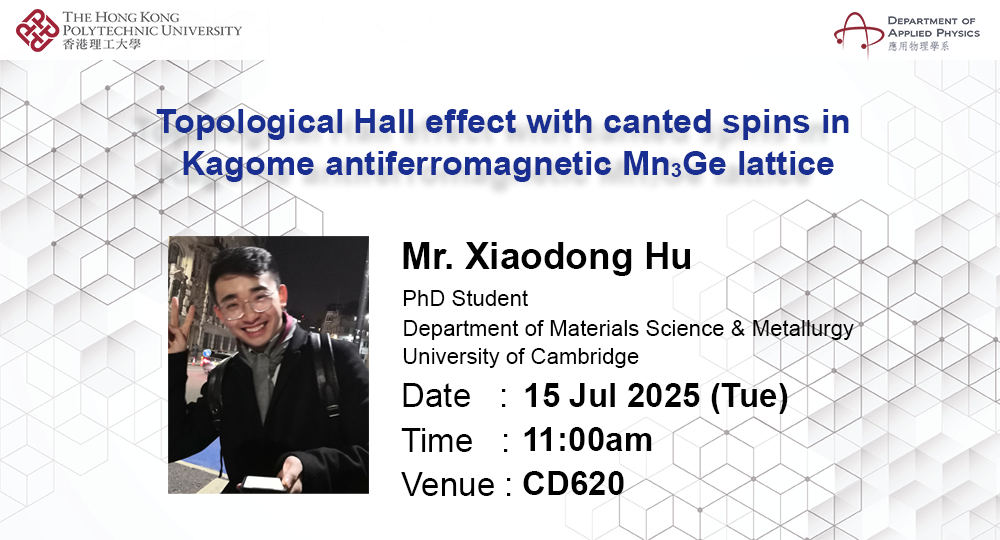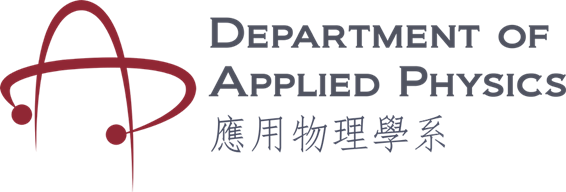AP Seminar - Topological Hall effect with canted spins in Kagome antiferromagnetic Mn3Ge lattice

-
Date
15 Jul 2025
-
Organiser
-
Time
11:00 - 12:00
-
Venue
CD620, 6/F, Wing CD, PolyU Map
Speaker
Mr. Xiaodong Hu
Summary
Antiferromagnets are emerging as promising materials for next-generation spintronics, offering high storage density, robustness, and rapid dynamic [1]. Binary signaling in antiferromagnetic structures has been realized using the frustrated Kagome Mn3X system, where X can be Ir, Pt, Sn, or Ge [2]. More recently, this system is drawing interdisciplinary interest in physics, including superconducting spintronics [3] and topological Hall effects [4].
Topological Hall effect has been achieved in Mn3X by Berry phase engineering via either spin-glass state transition [4] or Rashba spin-orbit interaction [5]. In this study, we found a new structural phase of Mn3Ge, which is related with a magnetically soft phase, and leads to a topological Hall effect at room temperature driven by solely spin canting. These results pave the way for expanding the study of non-collinear Kagome systems to include their intrinsic non-coplanar properties.
1. T. Jungwirth et al., Antiferromagnetic spintronics, Nature Nanotechnology 11, 231-241 (2016).
2. N. Kiyohara et al., Giant Anomalous Hall Effect in the Chiral Antiferromagnet Mn3Ge, Physical Review Applied 5, 064009 (2016).
3. K.-R. Jeon et al., Long-range supercurrents through a chiral non-collinear antiferromagnet in lateral Josephson junctions, Nature Materials 20, 1358-1363 (2021).
4. P. K. Rout et al., Field-induced topological Hall effect in the noncoplanar triangular antiferromagnetic geometry of Mn3Sn, Physical Review B 99, 094430 (2019).
5. X. Liu et al., Topological Spin Textures in a Non‐Collinear Antiferromagnet System, Advanced Materials 2211634 (2023).
Keynote Speaker
Mr. Xiaodong Hu
PhD Student
Department of Materials Science and Metallurgy
University of Cambridge
Xiaodong Hu is a year PhD student in Materials Physics at the University of Cambridge, working in Prof. Jason Robinson’s research group. His experimental research centres on the development of multifunctional magnetic thin films and related spintronic devices. He currently focuses on transport phenomena in Kagome antiferromagnets, with a longterm goal of engineering hybrid Kagome systems incorporating chiral molecules and superconducting layers. Xiaodong holds a Bachelor’s degree from the University of British Columbia (Canada) and a Master’s degree from Imperial College London (UK). Before beginning his PhD, he worked as a reliability engineer at Huawei.




